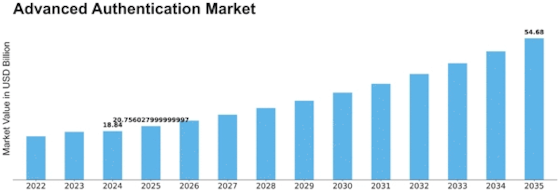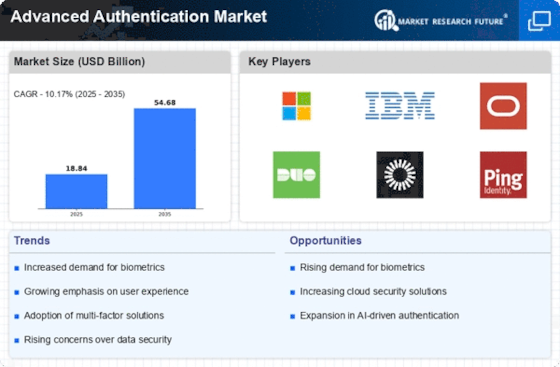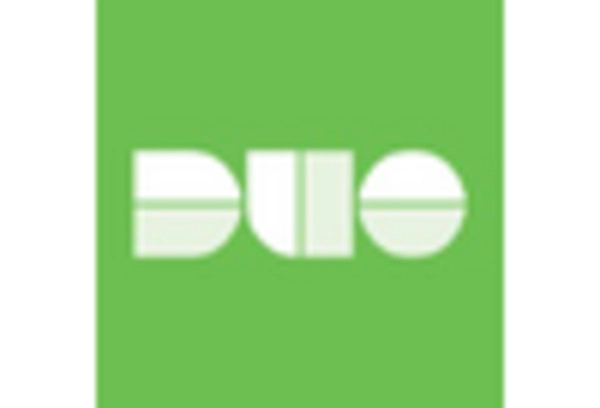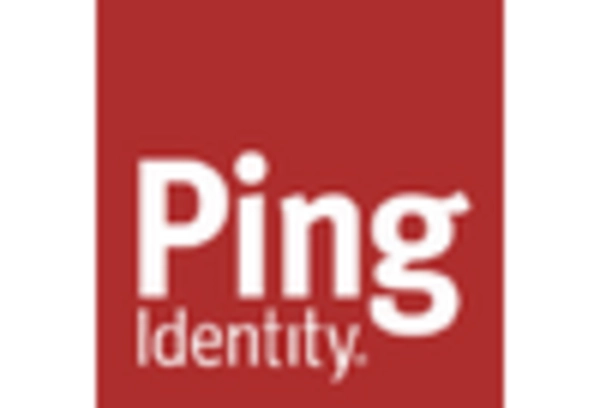Advanced Authentication Size
Advanced Authentication Market Growth Projections and Opportunities
A variety of key variables impact the Advanced Authentication market and define how it moves and how quickly it expands. Because online risks are growing more widespread and complicated. Because internet dangers are continually evolving, there is a significant need for more sophisticated detection solutions. The business is also boosted by organizations being more aware of password security flaws. This makes them search for stronger and safer choices.
Regulatory compliance is one of the most critical market considerations in Advanced Authentication. Businesses must utilize sophisticated login solutions to secure personal data due to strict data protection legislation and industry-specific compliance criteria. Laws mandate multi-factor authentication (MFA) and fingerprint authentication, among other sophisticated approaches. This strengthens market considerations as corporations endeavor to achieve government regulations and avoid probable legal and financial implications.
Identity theft and frauds are growing more widespread, which is one of the primary market issues that influences the Advanced Authentication environment. Cybercriminals are growing better at cracking user passwords, therefore companies need to upgrade their security systems to stop anyone from getting in without permission. This problem is most obvious in industries that deal with sensitive data, including government, healthcare, and finance, where the stakes are high and proper authentication techniques are vital.
The increased use of digital technologies and cloud computing is a market driver that is transforming the Advanced Authentication industry. Cyber threats have additional locations to target as firms transition to digital platforms and cloud-based technologies. Whether digital assets are stored in the cloud or viewed remotely, security technologies that safeguard access are even more important. The desire to increase safety while corporate operations become increasingly digital affects market variables.
AI and machine learning are major market factors in enhanced authentication. Businesses employ AI and ML to improve identification solutions. These technologies enable for continual user activity monitoring, odd behavior detection, and novel danger responses. Companies desire smart and proactive security, therefore AI-driven authentication drives the industry. This allows authentication systems to adapt to changing dangers.
Password-free security is a growing industry trend. Weak passwords and credential-based attacks may undermine password-based authentication. Companies are exploring passwordless authentication solutions including biometrics, smart cards, and token-based authentication to eliminate the need for passwords, transforming the industry. This trend demonstrates a shift in market considerations that effect login, emphasizing security and user experience.
Advanced Authentication is affected by global connectivity and mobile device availability. Businesses may struggle to ensure that users can access their systems from many devices as more individuals work from home and use mobile applications. Market factors are impacted by the requirement for authentication systems that can adapt to user preferences and improve user experience. This shift toward mobile-friendly authentication and controls is a reaction to the shifting employment market.
The Advanced Authentication market is impacted by competition and industry cooperation. Businesses compete with other vendors to provide features, speed improvements, and unique value propositions, which sparks new ideas. Advanced authentication suppliers and other sectors cooperate to develop the industry swiftly. Collaboration provides organizations with full identity solutions for industry and legal issues.



















Leave a Comment